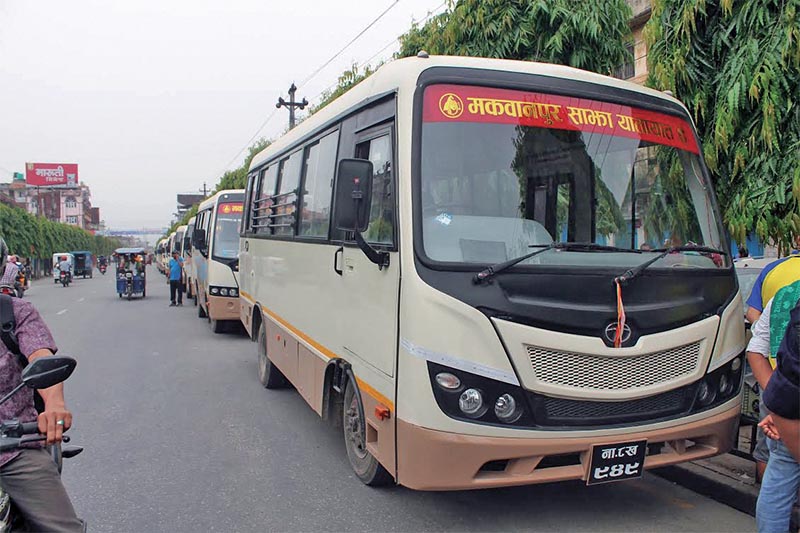High-tech, low emission buses introduced
Kathmandu, August 13
As many as 17 high-tech, low-emission buses have been introduced here today as part of a project funded by the Asian Development Bank.
The 25-seater buses will ply from Gongabu to Sinamangal as a pilot project — replacing the 26 old micro-buses and 35 tempos or three-wheelers that ply the route now, as per a media release.
The initiative is a part of the ADB Kathmandu Sustainable Urban Transport Project, which is promoting use of low-emission vehicles and helping improve public transport in Kathmandu valley.
Population growth, rapid urbanisation, and increasing number of vehicles in the valley have led to traffic congestion, road accidents, environmental degradation and poor public transport services in recent years.
“ADB is pleased to work closely with the Department of Transport Management on this project to provide the city with a more efficient urban transport system,” ADB Country Director for Nepal Mukhtor Khamudkhanov was quoted as saying in the release. “What is really commendable is that the effort to improve urban transport system is being led by a public-private partnership, and this partnership will be the key to the system’s sustainability in the long run.”
The capital for this initiative was provided by the government-managed Town Development Fund financed by ADB, grants from the Global Environment Facility, and equity financing from the company itself.
“The incentive for the owners who had to close micro-bus and tempo services on the designated routes and operate the high-tech buses is that they are now shareholders of the new company and will get regular dividends,” said project director Ananta Acharya, adding, “So, it’s a win-win situation for transport operators, passengers, and most importantly, for the environment.”
The new buses use Euro-IV emission standard engines that reduce the level of harmful exhaust emissions such as carbon monoxide. They also use a Global Positioning System enabling passengers to track the buses in real time. Passengers can also use card to pay their fare. Moreover the buses are disabled-friendly.
The project is helping improve traffic management in the city and making it more walkable through pedestrianisation of heritage routes and supporting the Department of Transport Management to enhance knowledge and skills in urban transport management, the release says.
The total cost of the project is $22.37 million, with the Nepal government contributing $7.9 million.






